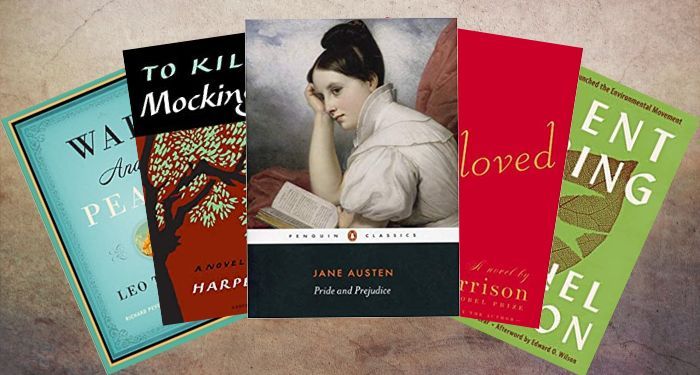How does a book become one of the most famous books of all time? What makes a book stick in our collective consciousness? How do some titles sound familiar even to those who haven’t read them?
The books on this list are widely-known. However, that does not mean that they are widely loved or are even necessarily good. I’ve intentionally left out the most problematic of these, as I don’t wish to give them or their authors any more attention (including the author of the wizard books). Still, there are a few WTF-worthy books included, so be forewarned.
Mostly, however, this list is full of titles many folks know about because of their cultural impact or their infamy beyond the bookish community. Some of them were forced upon us in school, others gained the spotlight thanks to Oprah or other celebrity buzz. Still, others are simply so controversial or surprising that people have been arguing about their merit or meaning for years.
Obviously, there are more noteworthy books than I have space for here, so don’t come for me if your faves (or your most hated) are absent from this list. Without further ado, here are more than 20 of the most famous books of all time. How many have you read?
The Most Famous Books of All Time
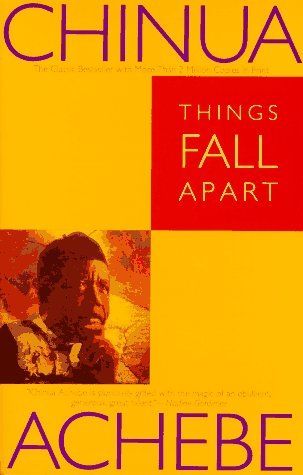
Things Fall Apart by Chinua Achebe
This tale of an Igbo warrior fighting to preserve his people’s culture in the face of British colonialism is a worldwide phenomenon and bestseller. As part of a trilogy, Achebe’s novel begins a story of three generations of a single Nigerian community. The novel helped earn Achebe the Nigerian National Merit Award and the Man Booker International Prize for lifetime achievement. Furthermore, having sold more than 20 million copies and been translated into 57 languages, it is one of the most illustrative tributes to the African experience in history.
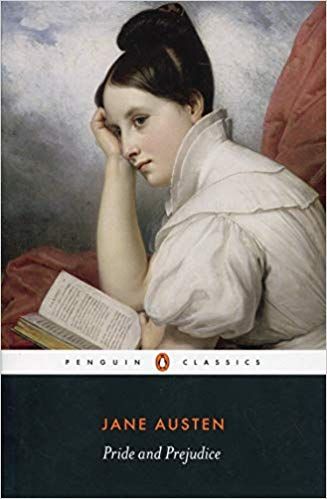
Pride and Prejudice by Jane Austen
It is a truth universally acknowledged that nerds like me will start a description of Pride and Prejudice with that opening line. Of Austen’s small but mighty catalog, the story of the Bennet sisters and their mother’s tireless quest to marry them off has endured the test of time. Despite the differences in social norms, the novel’s themes are somehow universal. We obstinate, headstrong, foolish girls know all about dealing with men who think they’re smarter than us. Additionally, the book has spawned countless movie and TV adaptations, retellings, and reimaginings.

The Kite Runner by Khaled Hosseini
Hosseini’s first novel explores complex relationships, guilt, and forgiveness against the backdrop of the fall of Afghanistan’s monarchy. A book club darling, The Kite Runner remained on the New York Times bestseller list for more than two years. However, the book was often challenged due to its description of sexual assault. Additionally, many Afghan Americans and Afghan people around the world found the negative portrayal of their home country offensive.
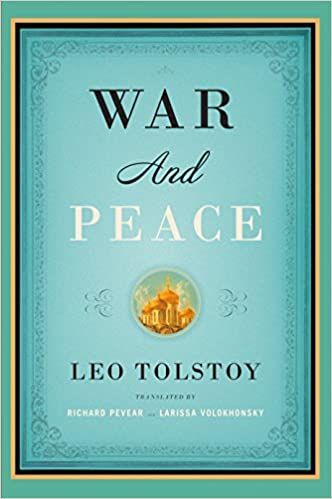
War and Peace by Leo Tolstoy
Without googling it, tell me what War and Peace is about. I don’t know either, but I do know it’s super long and I actually own it. Apparently, it’s set during the Napoleonic Wars and is a mixture of fiction, history, and philosophy. It is considered by many to be the greatest work of Russian literature. Conversely, others have argued its merits and even its genre for well over a century. This reader will never know.
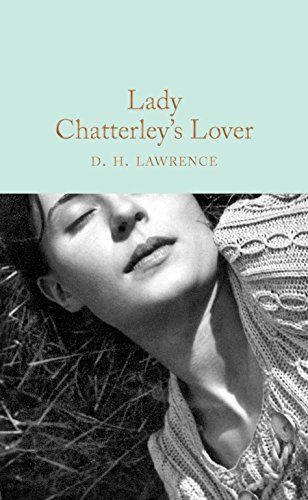
Lady Chatterley’s Lover by D.H. Lawrence
Now, let’s discuss something scandalous! (Please read that in Lady Whistledown’s voice.) D.H. Lawrence offended many a sensibility with this novel about a woman enjoying a sexual relationship. Lawrence went all in, describing the intimacy and using four-letter words that weren’t printed back then. Moreover, his heroine was slumming it with a man of a lower class. The censors absolutely lost their collective sh*t and Lawrence faced obscenity trials in the U.S., Britain, Japan, Australia, Canada, and India. Luckily, despite publishers being unwilling to touch it, private and pirated publications of the book circulated widely.
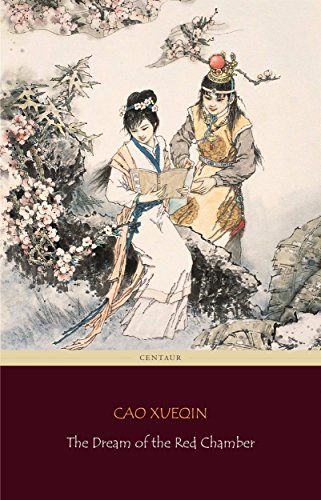
The Dream of the Red Chamber by Cao Xueqin
Among the oldest and longest novels in the world, The Dream of the Red Chamber has a fascinating history. Written in the mid-18th century by an author whose family served the Qing dynasty, it’s an inside look at Chinese society in the 1700s. It is considered one of the Four Masterworks, which are a collection of revered Chinese classics. However, due to Cao originally circulating handwritten copies, people published edited versions without his permission. Thus, these rogue versions offer commentary on the author and his perceptions and make the story even more fascinating historically.
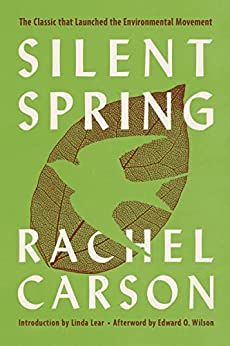
Silent Spring by Rachel Carson
Next, let’s talk about a book that changed the world. Carson’s Silent Spring relates her years of environmental research. Its scathing indictment of chemical companies changed U.S. laws governing pesticides. Furthermore, it swayed public opinion and started a national conversation that led to the foundation of the Environmental Protection Agency. Unquestionably, it is one of the most important nonfiction books of the 20th century.
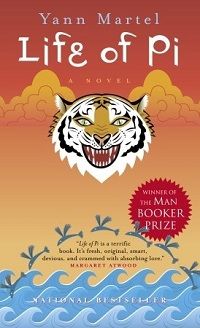
Life of Pi by Yann Martel
Although a book doesn’t have to be adapted into a movie to become famous, it sure doesn’t hurt. Both the 2001 book and Ang Lee’s 2012 film adaptation won multiple awards and wide critical acclaim. Importantly, this story makes readers question the nature of reality. How did a boy survive 227 days in a lifeboat? How much is allegory and how much is truth? Without a doubt, this novel will stay on your mind long after you finish reading it.
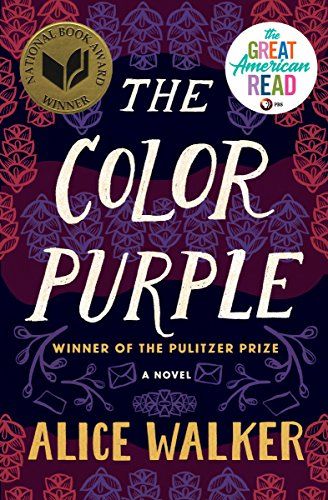
The Color Purple by Alice Walker
Like many Black folx of a certain age, I regularly watched the movie adaptation of The Color Purple growing up. (How is it that we all quote it and laugh when it is not at all comedic?) Thus, despite its difficult content, it holds a special place in my heart. When I finally read the award-winning novel, I was blown away. There’s a reason it won that Pulitzer and has been adapted for the stage and screen. BBC News included it in a list of the 100 most influential novels. A movie remake starring Fantasia as the main character, Celie, is set to release in 2023.
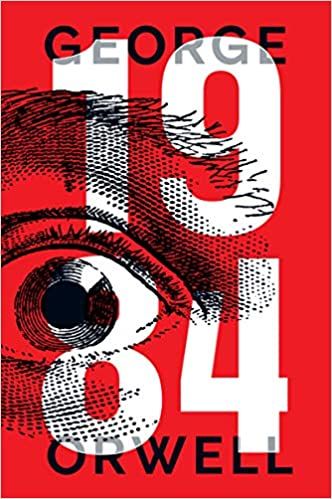
1984 by George Orwell
Like its popular predecessor Brave New World, 1984 is a dystopian classic that ranks highly among the most famous books of all time. Where Huxley’s masterpiece features a manufactured pseudo-utopia, Orwell’s tale presents a world where every aspect of life is minutely controlled. Many high school English syllabi require this one. Additionally, its cultural impact is massive. Notably, it introduced the concept of “big brother” into the popular lexicon.
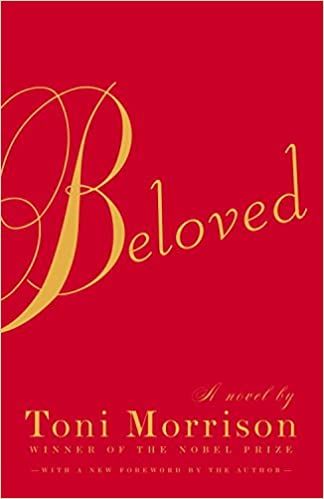
Beloved by Toni Morrison
Famous and infamous, Morrison’s most acclaimed novel lives rent-free in most of our heads due to the notorious filicide at the story’s center. An unflinching meditation on the horrors of slavery and generational trauma, Beloved is a difficult but compelling read. Unsurprisingly, it has been adapted into a movie, earned a ton of awards including the Pulitzer Prize for fiction, and has been banned a lot.
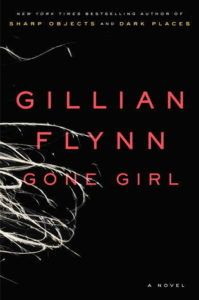
Gone Girl by Gillian Flynn
I vacillated between this title and Hawkins’ The Girl on the Train, because of their similar notoriety and twisty narratives. Ultimately, I chose this because after I read it I was so deliciously disturbed that I made my husband read it immediately just to have someone to discuss it with. Gone Girl is a chilling look into the mind of a privileged white woman who feels like life has not given her all she deserves. With the captivating storytelling, unreliable narrator, and absolutely batsh*t twist, this book made plenty of waves. Plus, Rosamund Pike and Ben Affleck brought the main characters to life perfectly in the movie adaptation.
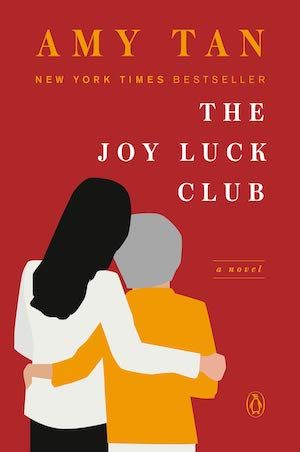
The Joy Luck Club By Amy Tan
Next, let’s talk about the powerful story of four Chinese immigrant mothers and their American-born daughters. This book of 16 interlocking stories has been adapted into a movie and has been a book club favorite. Unfortunately, some attribute its popularity to its perpetuation of Asian stereotypes, as well as its negative depictions of Asian cultures. Conversely, the well-developed female characters and the complex mother-daughter relationships continue to resonate with readers.
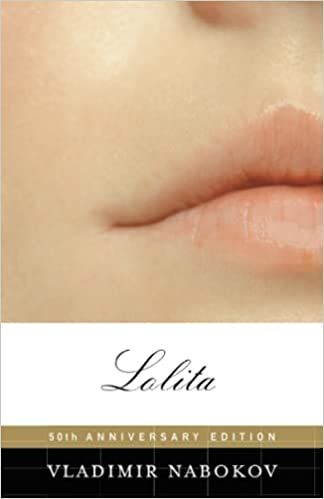
Lolita by Vladimir Nabokov
Controversy, thy name is Lolita. Middle-aged pervert and professor Humbert Humbert is sexually attracted to and obsessed with prepubescent girls. He waxes philosophical about it for long stretches of prose and historians and critics debate the meanings and metaphors and such. Unfortunately, I read it once and didn’t get any of that. All I got was scarred by his horrific abuse of his stepdaughter. Perhaps that’s the point, since Nabokov reveled in displaying Humbert’s twisted psyche.
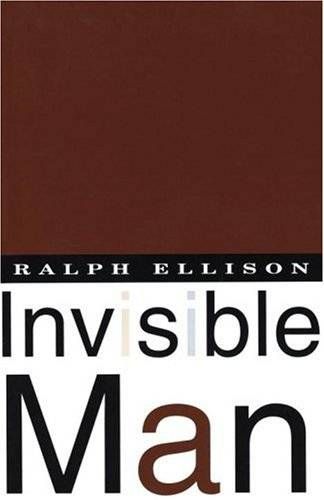
Invisible Man by Ralph Ellison
Along with other famous Black classics like Jacobs’ Incidents in the Life of a Slave Girl, DuBois’ The Souls of Black Folks, and Washington’s Up From Slavery, Invisible Man is required reading to understand the experience of African Americans. Ellison captures the simultaneous invisibility and hyper-visibility of Black people in the United States. The nameless protagonist wrestles with issues of identity and belonging, as well as other social and intellectual issues facing Blacks in the 1950s that still resonate today.
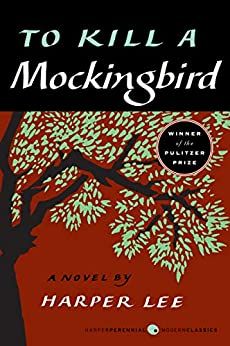
To Kill a Mockingbird by Harper Lee
If some English teacher didn’t make you read this one in school, you are a rare exception. This Pulitzer winner is practically synonymous with required high school reading. Lee’s story explores innocence and racism through the eyes of a precocious, lovable protagonist. Naturally, the book spawned an excellent movie (and remakes of varying qualities), stage plays, and an enduring national conversation.
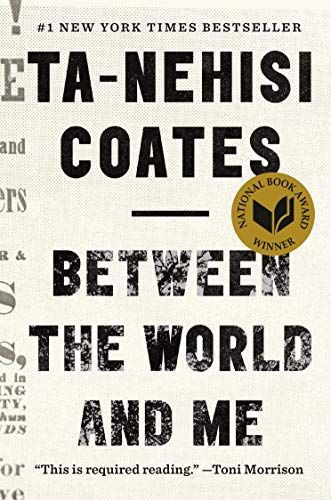
Between the World and Me by Ta-Nehisi Coates
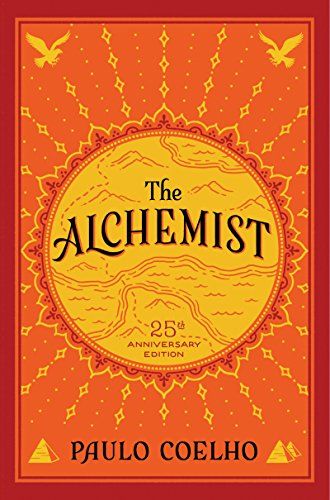
The Alchemist by Paulo Coelho
This international bestseller by Brazilian author Paulo Coelho debuted in 1987. It is so widely loved that it’s been translated into more than 80 languages. Its allegorical nature and hopeful message quickly resonated with readers. The Alchemist has sold over 80 million copies around the world and endured for generations.
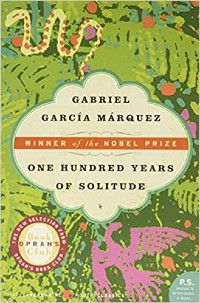
One Hundred Years of Solitude by Gabriel García Márquez
No list of the most famous books of all time would be complete without this 1967 classic. Selling more than 50 million copies and translated into 47 languages, One Hundred Years of Solitude is considered one of the greatest works of literature of the last century and a classic of magical realism. Furthermore, it won García Márquez the Nobel Prize for literature.
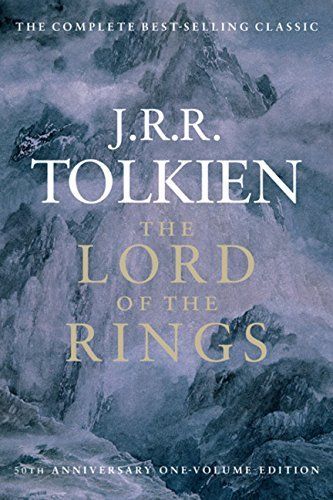
The Lord of the Rings by J.R.R. Tolkien
This 1937 classic is the bestselling sequel to The Hobbit, which was a bestseller in its own right. Tolkien’s masterpiece is the quintessential high fantasy epic for good reason. With its masterful worldbuilding and sprawling cast of interesting characters and creatures, there’s a lot to love. Of course, Peter Jackson’s movie adaptations catapulted the book to even more mainstream acclaim. Even the least bookish among us know about hobbits, Gollum, and giant fiery eyes.
There you have it! Did any of your least or most favorite titles make the list? Looking for more popular titles? Check out the lists below for more famous recommendations and other relevant resources.
